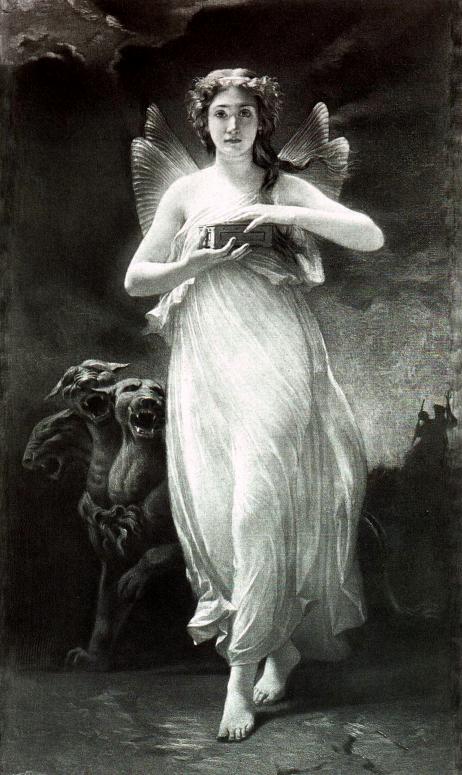In Psearch of Psyche: Day of the Triffids!

Psyche, in psearch of you
Is TOF's Faithful Reader ready? Yes, that's right. It's the next inpstallment of that pscintillating pseries, In Psearch of Psyche! For those coming late to the party, the previous chapters were:
For those disinclined to wade once more through those swamps, some key points are these:
- Psyche, or soul, is the substantial form of a living body, no more mysterious in its way than the sphere that somehow informs a basketball.
- There's more to it than that, of course: the form is "in motion" and not simply shape and arrangement. That's what makes the Argument from Motion (q.v.) so interesting.
- Soul is whatever a living body possesses that a dead body does not. It cannot be the matter of the body itself, since materialistically-speaking, the corpse consists of all the same matter as the organism that immediately preceded it. And in fact, your matter is continually changing at the atomic level. You are not today the stuff you were ten years ago. Since you are in fact the same person, you cannot be only your stuff.¹
- Inanimate forms possess (generically) four powers: gravity, electromagnetism, strong (nuclear), and weak (radiative). Without these powers, atoms would have no substantial form: The negative charges of the electrons would cause them to plummet into the positively charged nucleus. The positive charges of the protons would cause them to fly apart from one another, rather than huddle together in a nucleus.
- Living things are those whose actions are immanent: that is, their acts originate within the thing itself and are done for the sake of the thing. A basketball does not bounce for its own sake; but a petunia blooms for its.²
- The simplest of living things are the vegetative things, which include plants, fungi, and the like. (This is psyche-ology, so we won't worry overmuch about distinctions of bodily classifications made by creative taxonomists.
- The vegetative psyche, a/k/a the reproductive soul, possesses (generically) four powers in addition to the powers of the inanimate form: nutrition/metabolism, development/growth, and reproduction, plus homeostasis to maintain these in balance.
- A plant does not have two souls. Its inanimate powers are recruited into the service of the organism, so that (e.g.) the chemical processes of electromagnetism provide for the digestion and incorporation of food into the stuff of the organism.
- Man³ likewise incorporates both the powers of his inanimate stuff and his vegetative powers, which is why the Late Modern obsession with eating and reproductive acts reduces Man to little more than a vegetative state.
Clarifications:
1. not your stuff. This so upsets the Usual Suspects that they deny the minor premise. You are not the same person you were ten years ago. You only think you are. How "you" can think without being "you" is carefully ducked.
2. Note to the excessively literal-minded: This does not imply conscious intention.
3. Man. Do we really need to reiterate that this is the base meaning of "man" as "a rational animal," the same root as "men-tal"? When we mean Man, the Male, we'll say so. Males, alas, lack an exclusive word for themselves as rational beings, to which lack their wives will nod wisely in agreement. The original word for males in Anglo-Saxon was weremann (in contrast to wifmann), abbreviated wera ond wifa as it reads in Beowulf.
Read more »